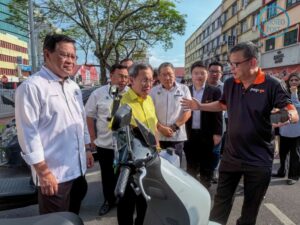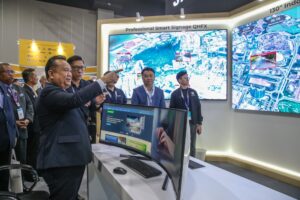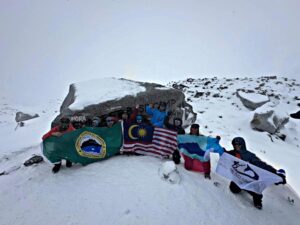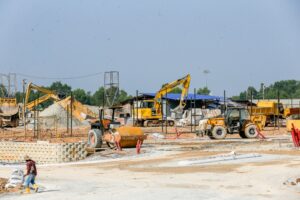KUALA LUMPUR, Oct 28 — The 47th Asean Summit and Related Summits — the bloc’s largest-ever and the first under Prime Minister Datuk Seri Anwar Ibrahim’s leadership — drew to a close today with several historic milestones.
The summit marked the first of many things — right from United States President Donald Trump‘s maiden visit to Malaysia to the bloc’s first expansion in 25 years.
This year, the bloc also completed South-east Asia’s geographical map with Timor-Leste’s inclusion and restored peaceful ties between Cambodia and Thailand through the KL Peace Accord.
Crucial trade talks between Washington and Beijing also took place on the sidelines of the summit, paving the way for a possible deal on Thursday.
So, here’s why Malay Mail thinks this milestone summit deserves credit:
1. Raising optimism for first Trump-Xi meeting in six years
A high-stakes meeting is set to take place between US President Donald Trump and Chinese President Xi Jinping in South Korea on Thursday — their first meeting since Trump second presidency began.
On the sidelines of the Asean Summit here, US and Chinese trade officials scrambled to put together a crucial deal in Kuala Lumpur on Sunday.
US Treasury Secretary Scott Bessent reportedly said the discussions here has led to “a substantial framework” and dismissed the possibility of the US imposing 100 per cent tariffs on Chinese goods.
Trump threathened to do so after China tightened export control on rare earth minerals this month.
However, the 79-year-old Republican left Malaysia for Japan yesterday, sounding more optimistic about closing a deal with his Chinese counterpart on Thursday.
2. Markets turn upbeat
Bessent’s encouraging remarks after US-China trade talks in Kuala Lumpur fuelled optimism among investors and spurred the market.
Wall Street stocks ended at fresh records again yesterday over optimism that the US-China trade war was about to ease, with a possible deal in view.
Bursa Malaysia also closed higher yesterday, tracking regional gains.
The prospect of a US-China deal also lifted investor sentiments, having already buoyed by the positive tone of the Asean Summit that boosted confidence in regional economic cooperation.
A deal between Washington and Beijing could finally give the world some semblance of normalcy after Trump’s sweeping tariffs since April threatened to upend economies and global growth.
3. Malaysian semiconductors still spared
A flurry of trade pacts were signed at the milestone summit, especially bilateral deals between the US and several tariff-hit member states.
Malaysia, for instance, signed a reciprocal trade agreement with the Trump administration, finalising the 19 per cent tariff for Malaysian goods entering the American market.
Cambodia, Thailand and Vietnam also managed to maintain their tariff rates during bilateral negotiations at the summit.
Though the agreement mentions little about semiconductors, Anwar said Trump has agreed to spare Malaysian semiconductors from the tariffs during their private ride in ‘The Beast’ on Sunday.
In exchange, Malaysia agreed not to ban or impose quotas on exports of critical minerals or rare earth elements to the US besides committing to other high-value purchases.
This marks a diplomatic win for the region since Asean supplies nearly half (45 per cent) of all US chip imports — with Malaysia alone accounting for 20 per cent of the total imports.
4. Bigger, more united Asean with historic milestones
The summit opened with Asean formally admitting Timor-Leste in the regional bloc’s first expansion in over 25 years.
On the same day, Cambodia and Thailand also signed the KL Peace Accord, cementing a ceasefire deal brokered by Anwar in July to end deadly border tensions between the two nations in July.
On South China Sea, China has also agreed to expedite negotiations for a legally-binding South China Sea Code of Conduct (COC) to settle maritime claims in the contested waters.
While the Myanmar conundrum persists, Anwar noted that the scale of violence there has reduced after his meetings with junta chief Senior General Min Aung Hlaing this year.
More importantly, Anwar attributed Asean’s success to host both US and China within a single summit cycle to its commitment to maintain Asean centrality while engaging with major powers.
In fact, bringing together prominent world leaders alone — even those deeply at odds with each other — was a major triumph for Malaysia’s chairmanship.
If anything, Anwar’s stewardship has supercharged the bloc to becoming the world’s fourth-largest economy by 2030.






